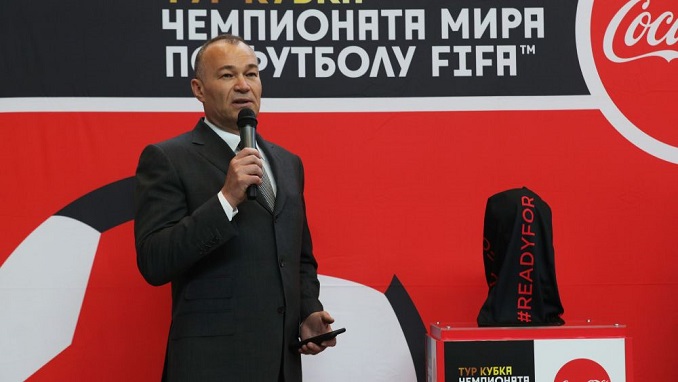Alexander Ponomarenko, Chairman of Sheremetyevo’s Board of Directors, discussed the airport’s response to the pandemic and the prospects for resuming normal airport activity in an interview with Forbes Russia.
Forbes Russia: The aviation business was affected by the coronavirus pandemic most significantly. Based on what scenario are you planning the future life of the Sheremetyevo Airport?
Alexander Ponomarenko: There are two scenarios in our forecast for this year. The first involves the resumption of international flights in July and the gradual restoration of passenger traffic until the end of this year. And the second is a much more complex scenario in which the restoration of passenger traffic to the level of 2019 will be much slower and will take at least 12 months, that is, no earlier than mid-2021. So far we are only looking only into this scenario, but it is already clear that this scenario is very challenging for us.
Forbes Russia: What activities are envisioned for the first scenario?
Alexander Ponomarenko: To maintain the balanced operation of the airport, we made a number of management decisions: temporarily closed the terminals C, D and E, significantly reduced all non-production costs, reallocated resources, as well as optimized processes and staff work schedules. We will probably move some of the employees to a four-day working week, while others take vacations – all within the framework of the current legislation. We take actions relevant to employees, including preventive measures, in connection with the protection of health to reduce the risk of illness. But this needs to be done without sacrificing operational activities: the number of flights and the number of passengers has decreased, but we still have a fairly large volume of operations – aircrafts need to be serviced regardless of the seat occupancy rate.
Forbes Russia: In what scenario are employees fired?
Alexander Ponomarenko: This will depend on many factors, in particular, on the pace and timing of the restoration of passenger traffic and the macroeconomic situation. If the second scenario is implemented, then this may lead to a partial reduction in the number of employees. But we, of course, will strive to preserve the team as much as possible, further reducing costs. During April and May, we will monitor the situation in Europe and how they come out of the crisis, and, depending on this, adjust our scenarios.
Forbes Russia: How long will passenger flow recover at least to the values of 2019?
Alexander Ponomarenko: Two scenarios that we are considering I have already mentioned. It is difficult to predict more accurately now as it is not known when the borders will be opened and restrictions on the movement of people around the world is lifted, what will be the purchasing power of the Russian population, and how quickly economic activity recovers.
Forbes Russia: Have you had any investment projects planned for this year that you now have to freeze?
Alexander Ponomarenko: We have completed the most large-scale projects related to the construction of terminals and the tunnel between terminals. This year, we were supposed to begin designing mechanical workshops for Sheremetyevo Handling. Mechanical workshops is a large production complex, which will have three technologies: diagnostics, maintenance and repair. Sheremetyevo Handling has about 6,000 pieces of equipment and 7,000 employees. The tender for the design, development of technology and an audit of our technology was won by the American company Hall Industries. Considering the current circumstances, I’m not ready to talk about the timing of this project. We had IT modernization programs, and, of course, we have now frozen these investments. There were projects to improve jobs for our employees – very important expenses, but we will also wait a while with them.
We are currently freezing all projects at the airport, except for one. For us, an extremely important issue is the reconstruction, or rather, the construction of the first runway before the winter cold, regardless of when the restoration of passenger flow begins.
An airfield is a state property that we have taken into concession. Construction work on the first runway is financed by the investment premium to the tariff for take-off and landing from airlines. Given that concession payments have been collected for a long time, and construction funds are needed now, we were forced to get a loan from Sberbank [in the amount of 6 billion rubles]. Therefore, we plan all the flows of money – not only loan or revenues from the investment premium rate, but also the income from our other enterprises to allocate for the construction of the first runway. In this situation, we, as private shareholders, gave up our dividends. But under a shareholder agreement with the Federal Property Management Agency, we are required to pay dividends in the amount of 25% [of net profit]. We want to come to an agreement with the state so that it meets us halfway and also gives up dividends. The corresponding letter has already been sent to the Federal Property Management Agency.
Forbes Russia: What other measures of state support, in addition to giving up of dividends, do you need now?
Alexander Ponomarenko: It all depends on which of the two scenarios will develop. We might get some kind of tax relief in the form of deferment or installment plan for tax payments. One of the options could be subsidizing the interest rate on loans; after all, we are building state property, and we have already done a lot, for example, we built two huge aprons near Terminal C.












